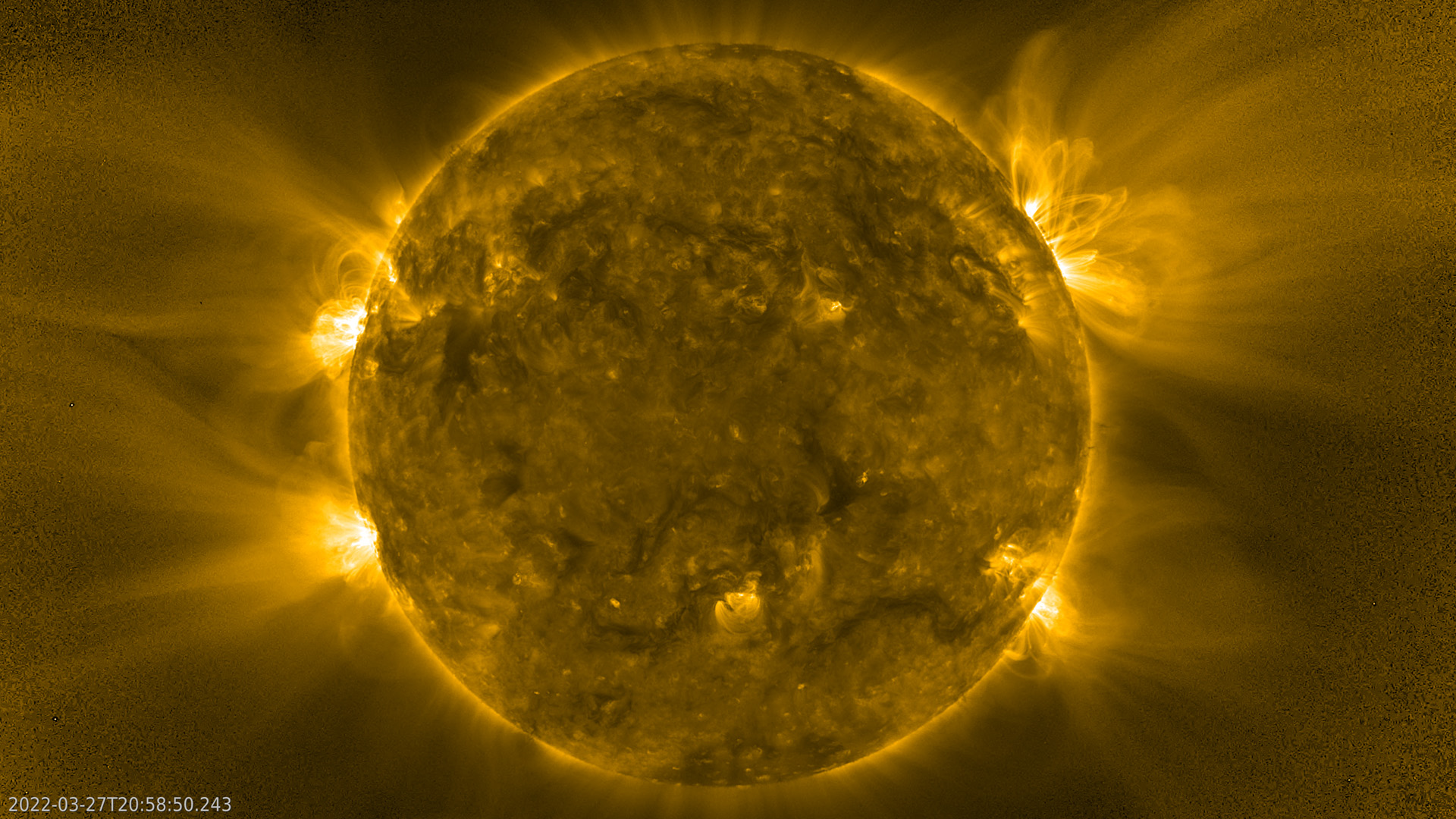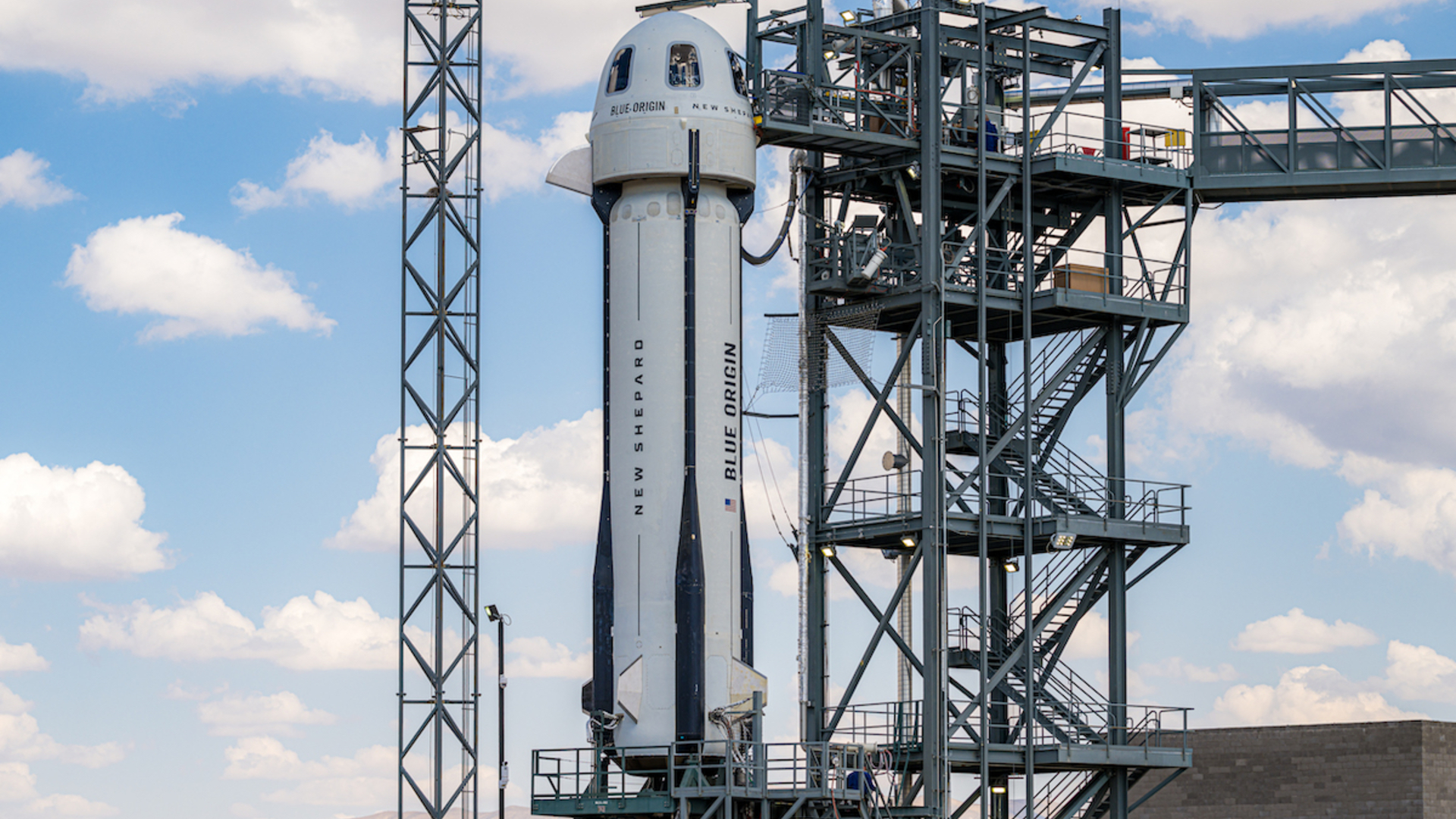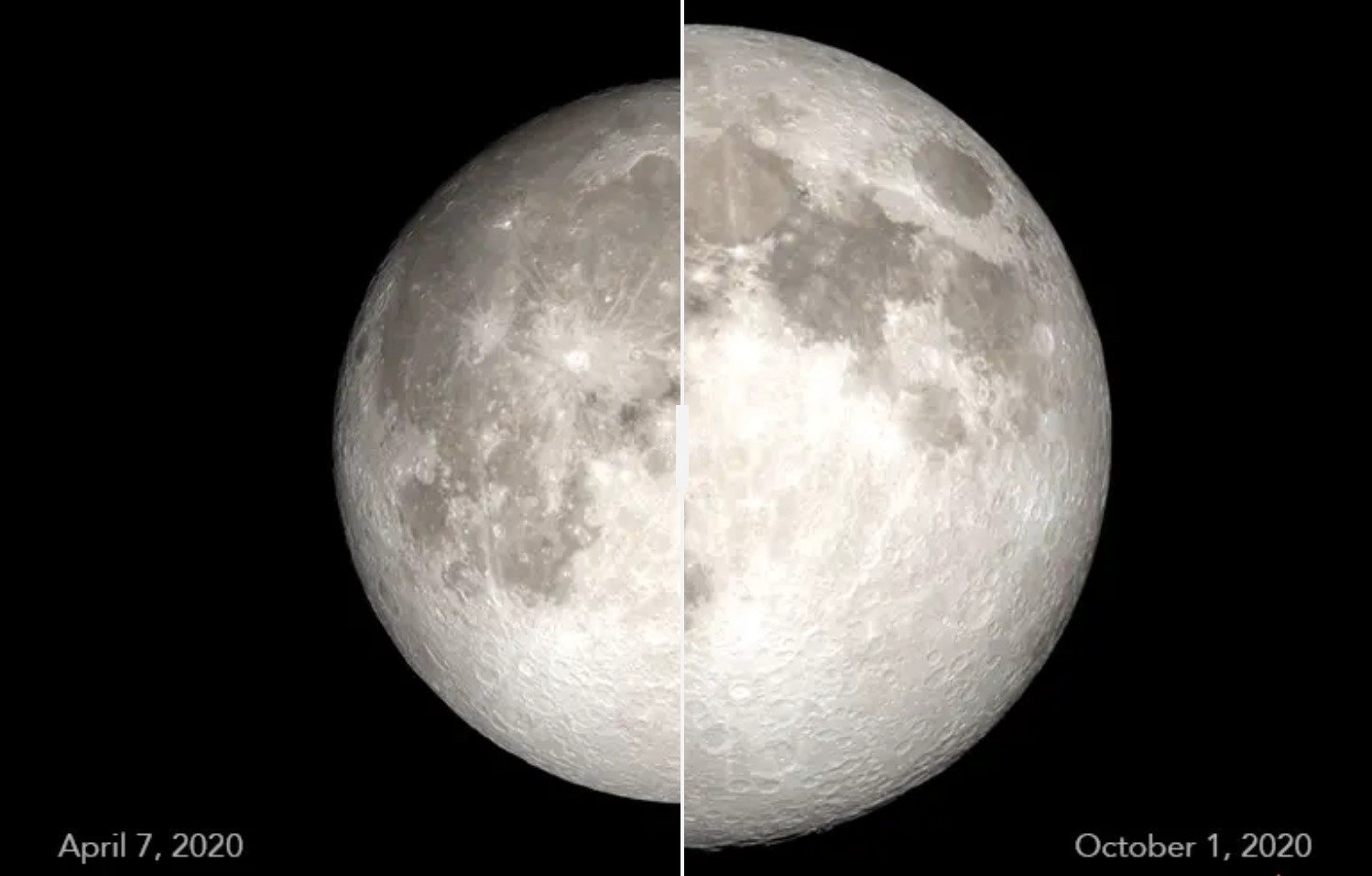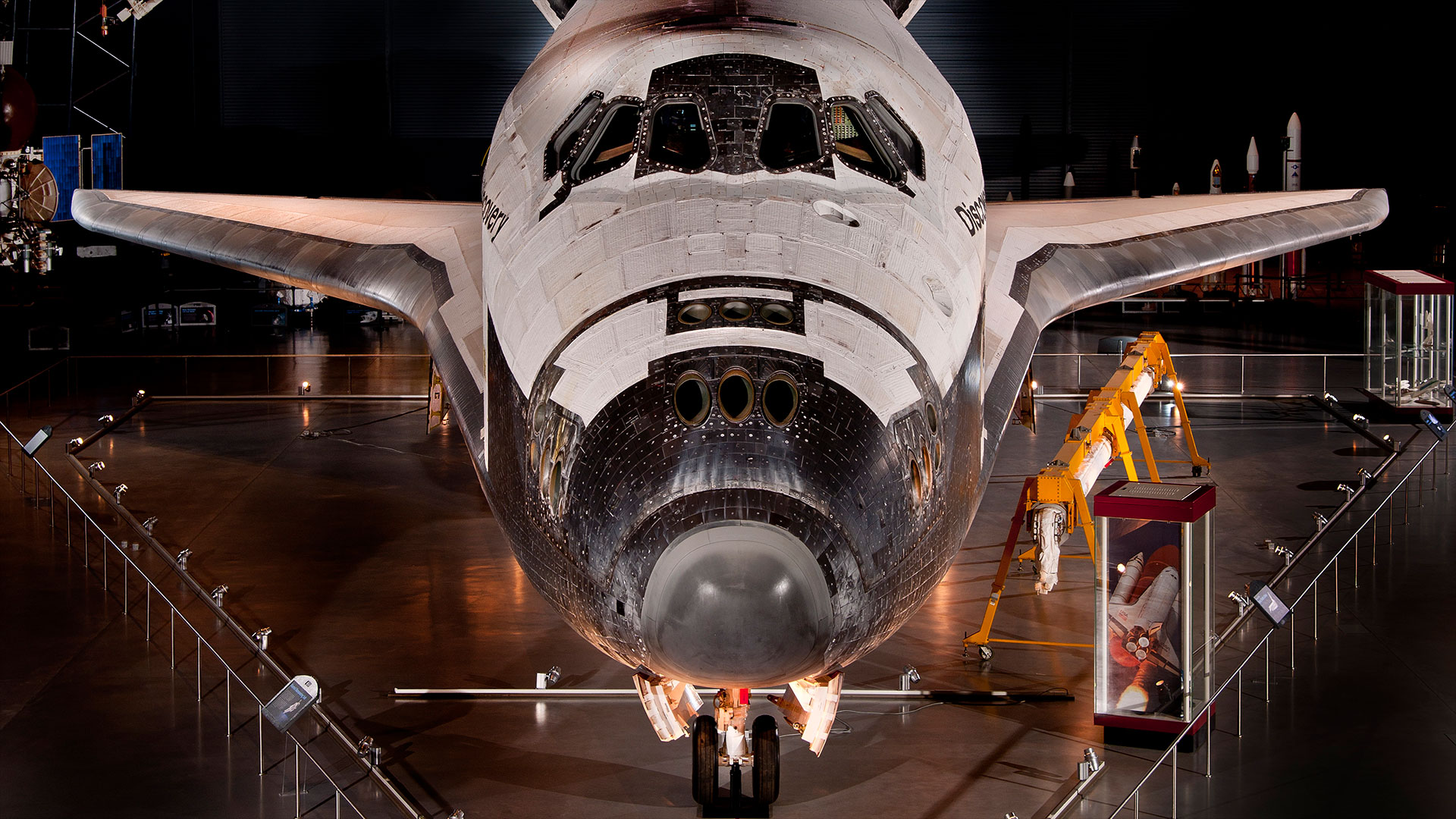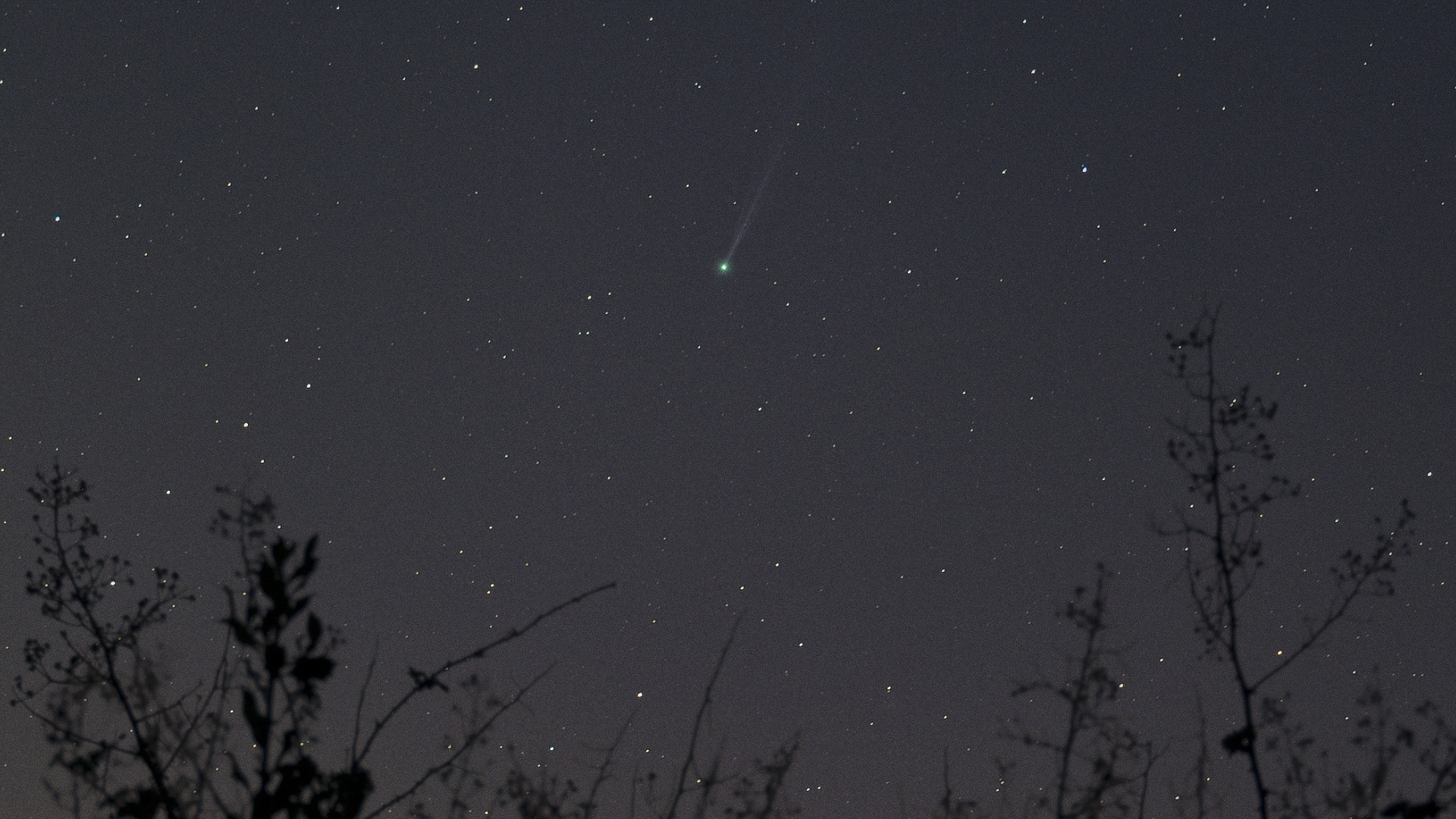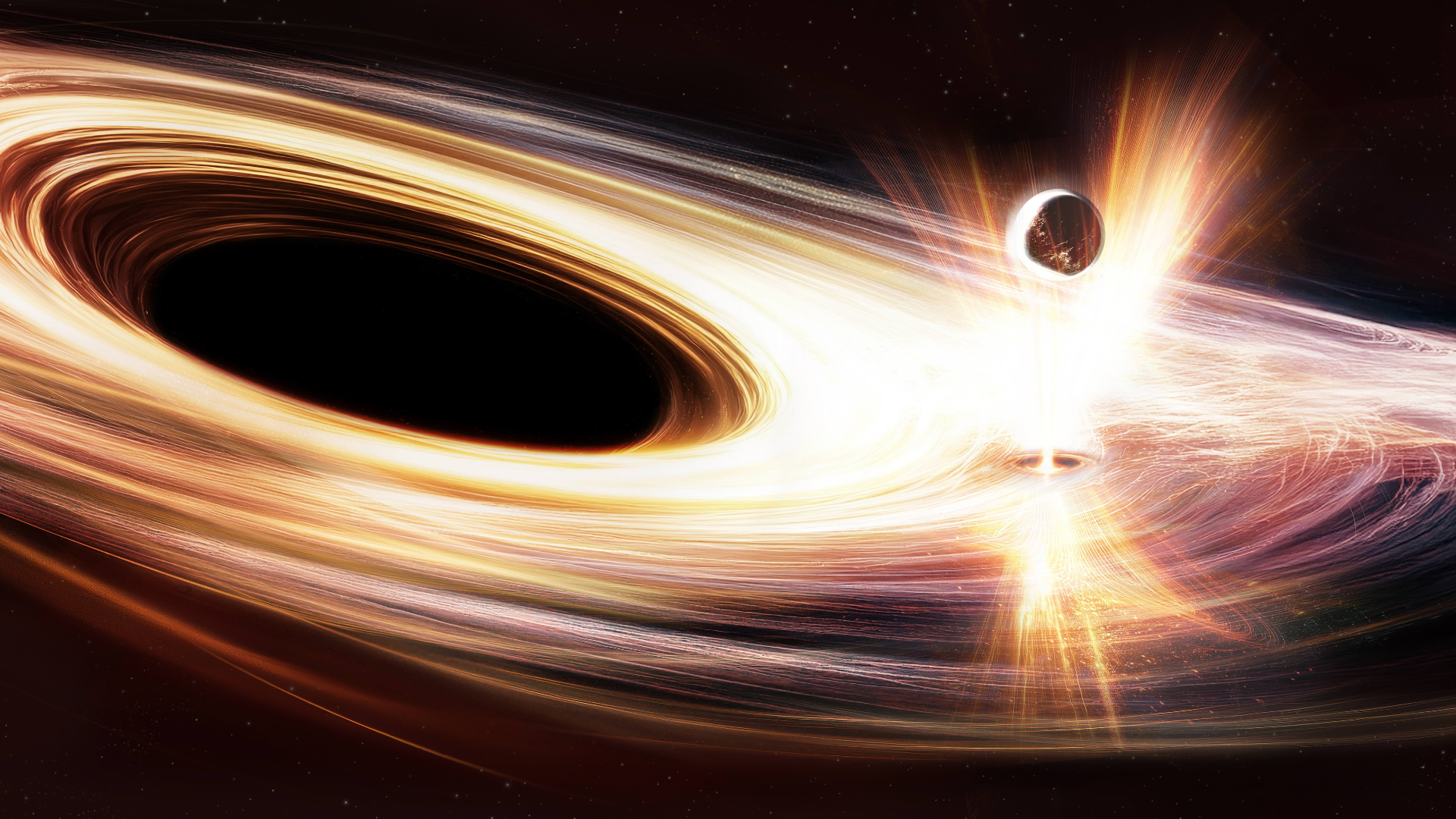Czech Republic signs Artemis Accords for 'peaceful, cooperative and sustainable' moon exploration
The list of signees now includes a total of 24 nations.
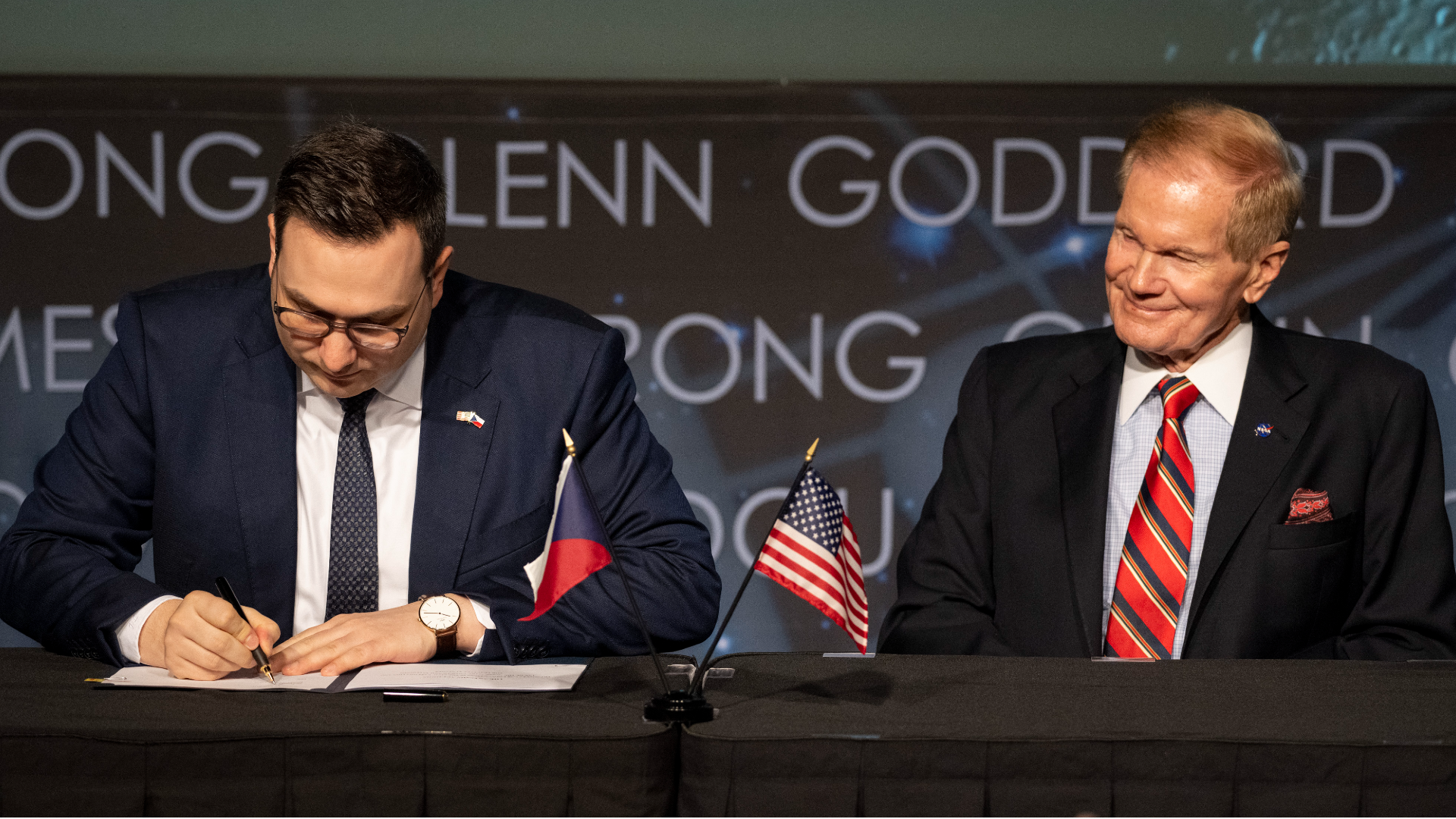
The number of nations that have signed onto the Artemis Accords continues to grow.
During a ceremony held at NASA Headquarters in Washington, D.C. on Wednesday (May 3), the Czech Republic's Foreign Minister Jan Lipavský signed the Artemis Accords on behalf of the nation alongside NASA Administrator Bill Nelson. In doing so, the Czech Republic now becomes the 24th country to sign on to the international agreement that lays out principles for responsible exploration and development of the moon and space.
"I believe that the Artemis Accords will enable closer cooperation and coordination between like-minded nations," Lipavský said during Wednesday's ceremony. "We believe that the signature will kickstart the development of an institutional and industrial cooperation within the Artemis community."
Related: What are the Artemis Accords?
In his remarks, Lipavský detailed the decades of research in space sciences the Czech Republic has conducted in addition to contemporary efforts such as the development of equipment for NASA's planned moon-orbiting Lunar Gateway space station and the European Large Logistics Lander that will be able to transport tons of cargo to and from the moon. In addition, in April 2023, the European Space Agency (ESA) funded studies at several Czech research institutions that aim to assess the feasibility of building a nuclear rocket for deep-space exploration.
During the signing ceremony, NASA's Bill Nelson spoke of the importance of international cooperation as a foundation for making progress in space.
"We are united by the possibilities of deep-space exploration together. We are united by the promise of goodwill here on Earth, because discovery strengthens diplomacy," Nelson said. "And now as we sail on this new cosmic sea, going to foreign cosmic shores, there's so much to learn. There's so much to be excited about. And now we go with our friends and neighbors, and that includes the Czech Republic."
Get the Space.com Newsletter
Breaking space news, the latest updates on rocket launches, skywatching events and more!
Nelson added that the last human to set foot on the moon, NASA astronaut Gene Cernan, was of Czech descent, with family ties to a small village south of Prague.
The Artemis Accords were launched in 2020 by NASA and the U.S. Department of State as a non-binding framework that lays out broad principles for peaceful international cooperation in space. They take their name from the Greek goddess of the moon, for whom NASA's Artemis program is also named.
The first eight countries to sign the accords were the United States, United Kingdom, Canada, Australia, Japan, Italy, Luxembourg and the United Arab Emirates. The list now includes a total of 24 nations.
Not all countries view the Artemis Accords positively, however. Some nations, including Russia and China, have argued that the framework is skewed in favor of the United States. Others, such as Germany and India, have likewise abstained from the accords out of a belief that resources in space should be off-limits for economic ownership by any one nation.
Editor's note: This article was updated on June 8, 2023 to clarify the list of nations that have not signed the Artemis Accords.
Join our Space Forums to keep talking space on the latest missions, night sky and more! And if you have a news tip, correction or comment, let us know at: community@space.com.

Brett is curious about emerging aerospace technologies, alternative launch concepts, military space developments and uncrewed aircraft systems. Brett's work has appeared on Scientific American, The War Zone, Popular Science, the History Channel, Science Discovery and more. Brett has English degrees from Clemson University and the University of North Carolina at Charlotte. In his free time, Brett enjoys skywatching throughout the dark skies of the Appalachian mountains.




